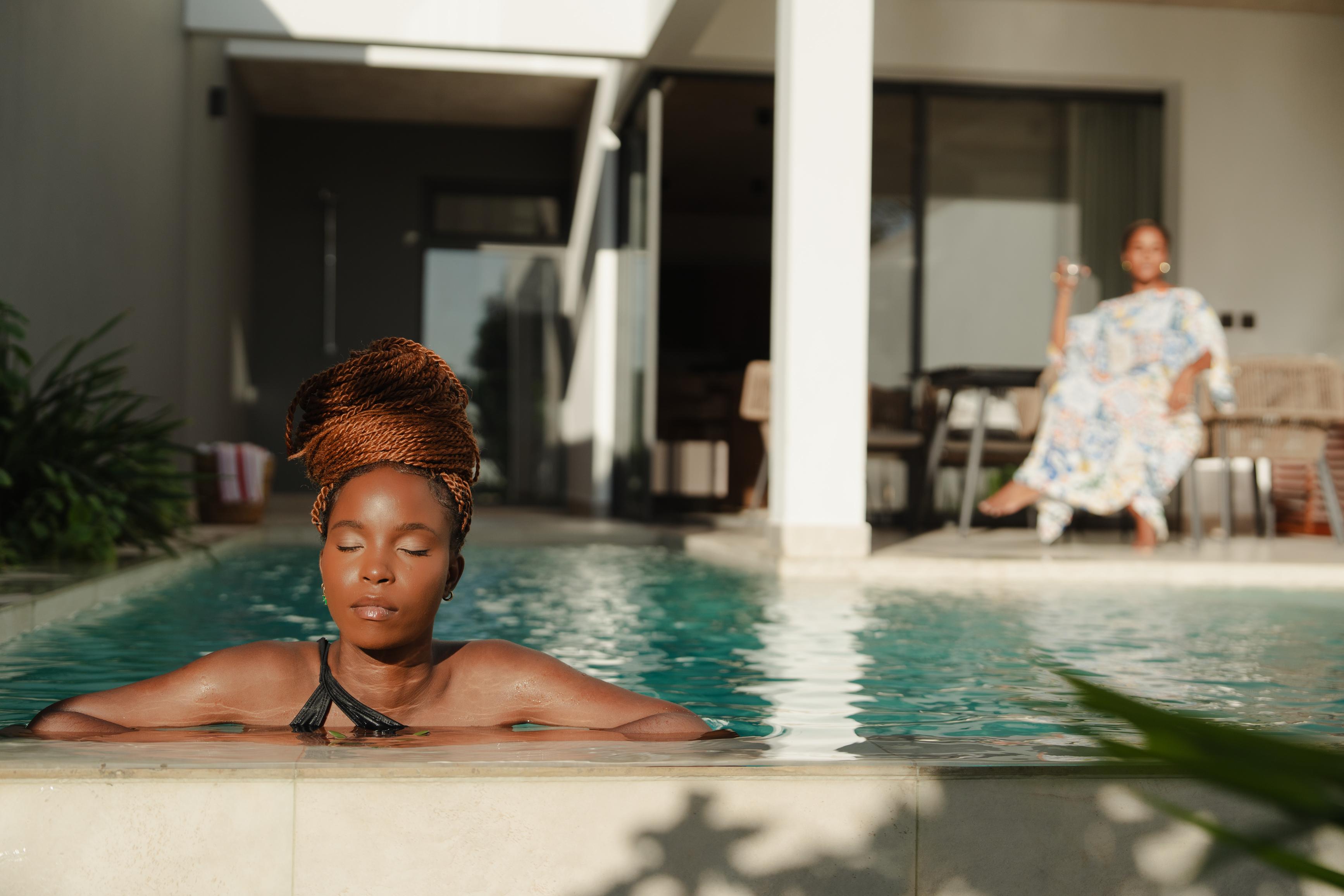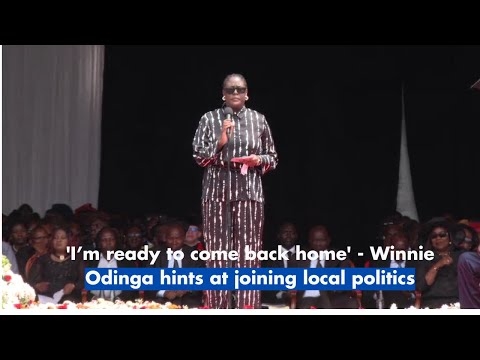

“Imagine a carefree life for you and your children,” Sebastian Dietzold pitches to prospective buyers of homes there. He is the CEO and co-founder of the developer, CPS Africa.
Zanzibar is a semi-autonomous region of Tanzania, with more than 70 islands. Fumba Town is on the largest, Unguja.
Exploring the town is an adventure in itself. A massive mural of wildlife greets you at the entrance, with smaller ones painted in the precincts. The art promotes both safaris and conservation.
A
series of timber blocks one to six floors high spread out through the 149-acre
settlement. Each block has a Swahili name, just like the roads around them.
White painting, used to reflect tropical heat, disguises the building material, but tap the walls and the feel of wood is prevalent.
Some 700 units have been completed out of the 5,000 planned by 2035. There are more than 1,000 owners and tenants, with higher occupancy in holiday seasons.
Units are numbered alphanumerically and have high-quality furnishing. Tree-shaded pathways around them make for a pleasant walk or bike ride.
There are clearly labelled bins between the houses for segregating trash. Nearly all household waste is recycled and composted to generate soil for tree planting and food production. Even construction waste was repurposed into a park.
Facilities include a sports centre, library, playgrounds, swimming pools, cafes and restaurants. A beach bar on the periphery offers live music shows at night and splendid sunset views.
Every quarter, the town produces its own newspaper, The Fumba Times. And it regularly hosts festivals, such as FuTopia Zanzibar, which will run from August 29 to 31.
LIVING IN HARMONY
But what makes life in Fumba Town so “carefree”, you don’t have to worry about your kids getting lost in the sprawling grid?
“The risk level of Zanzibar is the lowest in the region,” Sebastian said, citing international risk advisers.
A guard with Fortitude Total Security affirmed the town’s safety record. Human patrols are reinforced by CCTV cameras, he said.
CPS has good relations with the community. It works with Empower, a pan-African consultancy based in Dar es Salaam, which helps in training and employing local staff.
The value of capacity building cannot be overstated. While Zanzibar is heavily dependent on tourism, many locals miss out on skilled and managerial jobs for lack of training and education and cultural perceptions.
Some 60 per cent of tourism activities are conducted by foreigners, according to the head of the civil service, Chief Secretary Zena Said. Migrants from the mainland also dominate the sector.
So far, CPS and its sister companies have created more than 1,300 jobs, with 60 per cent of the employees trained on the job. It plans to create 4,000 permanent jobs by 2035.
Empower Partner Joshua Naiman said they are keen to play their part by “delivering transformational consulting”.
Labourer Salwa Malik confirmed that a lot of locals had gotten jobs in the town, especially in construction.
He said it’s in the culture and religion of Zanzibaris to be peaceful. Around 99 per cent of the population is Muslim.
“Also, there is plenty of food on the island, eliminating hunger that would otherwise motivate crime,” Malik said.
“And many youths get remittances from the diaspora, especially Oman, where many have relatives.”
POPULAR PLACE
CPS started the town in 2015 in Fumba under the auspices of the Zanzibar Investment Promotion Authority (ZIPA).
The
first houses were completed and handed over in 2018. Residency permits for
foreign homeowners came later, after immigration laws were changed in 2023. The
picture of a beaming Dutch woman receiving hers last year adorns the calendars
in ZIPA’s offices.
Fumba Town is also developing into an education hub, with the African School of Economics and the Indian Institute of Technology Madras setting up campuses there.
The town is managed by the Town Operations Company (TOC). It acts like a city council on one hand, overseeing services such as garbage collection, and like a caretaker on the other, managing rentals or looking after homes for owners simply holding them as an investment.
“There’s a lot of digital nomads around,” TOC General Manager James Scott said, describing the internet as “very good”.
“Many of our occupants and residents are potentially living here for two or three months, working from home.”
Junaid Raza, a Pakistani, is one of the people who come and go. He works in Japan, where the work culture is very demanding.
Raza would holiday in Turkey but chose Zanzibar early last year when he heard about Fumba Town. He was impressed by the balance of modern infrastructure and sustainable living.
It struck him as a hidden gem for smart investors. He bought a unit for vacation and rental income, and is planning to add another. The paperwork was smoother than he expected, and the team was helpful even remotely.
“Living
in the hustle of Tokyo, I constantly search for quiet, soulful getaways. Fumba
Town offers just that,” Raza said.
“The air is clean, the ocean is a few steps away, and the entire environment promotes wellness.”
A growing presence of smart, eco-conscious people made for good company. As a Muslim, Raza integrated easily thanks to the proximity of mosques and the presence of Muslim expats. And he found the cost of living much lower than in Japan.
He was a picture of happiness on his return to Fumba Town this year for a month-long vacation.
“When I’m working, I feel like life is a blur. But when I’m here, I feel like I’m able to actually live,” Raza said, smiling as he took a late breakfast at Kwetu Kwenu restaurant.
“I never thought I would consider Africa for retirement, but Zanzibar changed my mind.”
As he spoke, a well-fed ginger cat dozed on a pony wall nearby, lying supine with legs stretched except one that was curled around the chest. “This is the life,” the kitty seemed to say.
VISION COME TRUE
Outside the melting pot of Fumba Town, tourism sites are drawing people from all over the world. They include Stone Town, Old Slave Market, spice farms and white-sand beaches.
Zanzibar, which has a population of 1.8 million, had more than 736,000 tourists last year, contributing to 30 per cent of its GDP.
“Kenya is the leading source of tourists,” Tourism Minister Mudrick Soraga said. He turned up for the interview even on Eid al-Adha holiday, and arrived without the pomp and entourage of many African politicians.
He said the island has a fragile ecosystem, so his ministry is working with NGOs to train stakeholders in sustainable practices, especially in waste management.
The government is also careful not to take in more tourists than the island can sustain.
“We don’t want to have overtourism or mass tourism,” Soraga said, a problem that has sparked protests in Europe.
“We are conducting a study to review the carrying capacity of the island. Once it is done, policies will be adjusted based on the conclusions.”
Still, the industry has bounced back with a bang after Covid, testing the resources on the island. The minister said infrastructure is one of the “top priorities” for the government, which is led by President Hussein Mwinyi.
Roads are being tarmacked, solar streetlights set up and sidewalks paved. Airports are being expanded, ports upgraded, hospitals built, electricity increased and water and sanitation services enhanced.
Fumba
Town also faces the challenge of catering to more people in future. Land is not
increasing but people are.
In its master plan, CPS designated a part of the town as the site of a skyscraper, Burj Zanzibar.
It will rise 27 storeys, and the first six floors will be dedicated to a Canopy by Hilton luxury hotel.
Once completed in 2028, it will be the world’s tallest timber tower, surpassing the 19-storey Roots Tower in Germany, which it is modelled after.
The industry has noted CPS’s transformative approach to construction. For its work with Fumba Town, it scooped the Residential Development 20+ Units award in Dubai in 2023 at the African Property Awards.
A slideshow on Fumba Town shows an aerial picture of Fumba in 2015, when it was an isolated bushland with a couple of show houses. The next slide shows one taken in 2024, when it was dotted with “shiny white apartments, villas and seafront mansions now sold, and the first 1,000 owners and tenants living here”, to quote The Fumba Times.
Sebastian brushed his hair back with his hand as he presented it, beaming as he took stock of how far the project had come. “Fumba has grown from a relatively unknown area to one of the hottest investment and tourism destinations.”
***
Tom Jalio is the Features Editor of the Star and Producer of the ‘JalioTales’ YouTube channel













